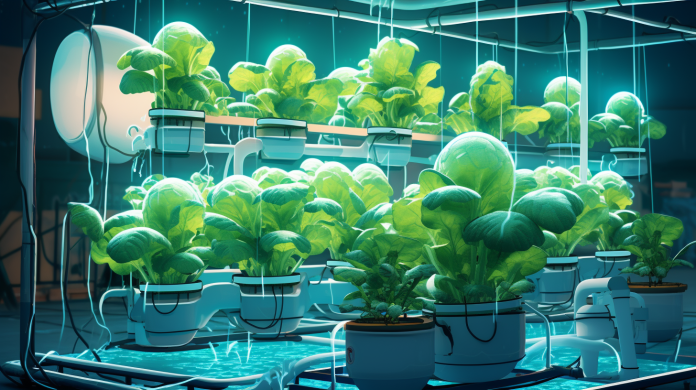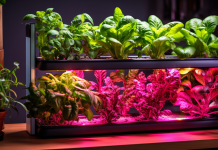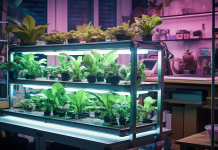Welcome to our article on hydroponic nutrient solution recipes, where we delve into the art of crafting the perfect feed for your plants.
Understanding the essential nutrients required for healthy plant growth is crucial, and we will explore different formulas to meet those needs.
Whether you are a seasoned gardener or just starting out, our DIY nutrient solution recipes tailored for specific plants will help you achieve optimal plant health.
Understanding Plant Nutrient Requirements
Plant nutritionists study the specific nutrient requirements of different plant species to optimize their growth and development. Understanding these requirements is crucial in providing plants with the necessary nutrients for healthy growth.
Plants require a variety of nutrients, including macronutrients and micronutrients, to carry out essential physiological functions.
Macronutrients, such as nitrogen, phosphorus, and potassium, are required in larger quantities and play a vital role in plant growth and development.
Micronutrients, such as iron, zinc, and manganese, are needed in smaller quantities but are equally important for plant health.
Essential Nutrients for Healthy Plant Growth
To ensure healthy plant growth, it is essential to provide the right balance of essential nutrients through a nutrient solution. Plants require various nutrients to carry out their metabolic processes and maintain optimal health. Here are the key essential nutrients that are vital for healthy plant growth:
- Macronutrients:
- Nitrogen (N): essential for leaf and stem growth
- Phosphorus (P): promotes root development and flowering
- Potassium (K): enhances overall plant health and disease resistance
- Micronutrients:
- Iron (Fe): necessary for chlorophyll production
- Zinc (Zn): aids in enzyme activity and hormone regulation
These nutrients play crucial roles in plant physiology, and a deficiency or imbalance can lead to stunted growth, nutrient deficiencies, and susceptibility to diseases.
Exploring Different Nutrient Solution Formulas
One of the most effective ways to optimize plant nutrition is by exploring different nutrient solution formulas and their potential benefits.
There are various nutrient solution recipes available that can be customized to suit different plant species and growth stages. For example, a general-purpose nutrient solution formula may include essential macronutrients such as nitrogen, phosphorus, and potassium, along with secondary nutrients like calcium and magnesium.
However, different plants may have specific nutrient requirements, and adjusting the nutrient solution accordingly can enhance their growth and yield.
Additionally, some nutrient solution formulas may include additives like seaweed extract or beneficial microbes to further enhance plant health and resilience.
DIY Nutrient Solution Recipes for Specific Plants
When formulating nutrient solution recipes for specific plants, it is crucial to consider their unique nutritional needs and growth requirements. Different plants have different preferences when it comes to the types and quantities of nutrients they require.
Here are some DIY nutrient solution recipes for specific plants:
- Tomatoes:
- Nitrogen-rich solution: 3 parts calcium nitrate, 1 part potassium nitrate, and 2 parts magnesium sulfate.
- Phosphorus-rich solution: 2 parts monopotassium phosphate, 1 part potassium nitrate, and 1 part magnesium sulfate.
- Leafy greens:
- Nitrogen-rich solution: 1 part calcium nitrate, 2 parts potassium nitrate, and 1 part magnesium sulfate.
- Iron-rich solution: 1 part iron chelate, 1 part calcium nitrate, and 1 part potassium nitrate.
These nutrient solution recipes provide the necessary elements for optimal growth and development of tomatoes and leafy greens, ensuring they receive the nutrients they need to thrive.
Tips for Adjusting Nutrient Solutions for Optimal Plant Health
An essential aspect of achieving optimal plant health is by carefully adjusting the nutrient solutions based on specific ratios and concentrations. By fine-tuning the nutrient solution, you can ensure that your plants receive the right balance of essential elements they need for growth and development. Here are some tips for adjusting nutrient solutions for optimal plant health:
- Monitor pH levels: pH plays a crucial role in nutrient absorption. Aim for a pH range of 5.5-6.5 for most plants. Use pH testing kits to regularly check and adjust the pH of your nutrient solution.
- Adjust nutrient ratios: Different plants have varying nutrient requirements. Use the following table as a guide to adjust nutrient ratios based on the stage of plant growth:
| Nutrient | Vegetative Stage | Flowering Stage | Fruiting Stage |
|---|---|---|---|
| Nitrogen | High | Medium | Low |
| Phosphorus | Medium | High | High |
| Potassium | Medium | Medium | High |
Consider plant deficiencies: Keep an eye out for signs of nutrient deficiencies in your plants. Adjust the nutrient solution by increasing the concentration of the deficient nutrient to address the issue.
Key Takeaways
- Plant nutritionists study specific nutrient requirements of different plant species to ensure healthy growth and development.
- Macronutrients (nitrogen, phosphorus, potassium) are needed in larger quantities, while micronutrients (iron, zinc, manganese) are needed in smaller quantities.
- Deficiencies or imbalances in nutrients can lead to stunted growth and nutrient deficiencies, making it important to provide the right balance of essential nutrients.
- Customizing nutrient solution formulas based on plant species and growth stages can optimize plant nutrition and enhance overall plant health and disease resistance.
Conclusion
In conclusion, crafting the perfect hydroponic nutrient solution recipes for your plants is essential for their healthy growth. By understanding the nutrient requirements of plants and exploring different formulas, you can create DIY nutrient solutions that cater to specific plant types.
Adjusting these solutions based on plant health indicators can further optimize their growth. Providing the right balance of essential nutrients is key to ensuring the overall well-being and vitality of your plants.
Please see our supporting article:
Ph Basics: What It Is and Why It Matters



